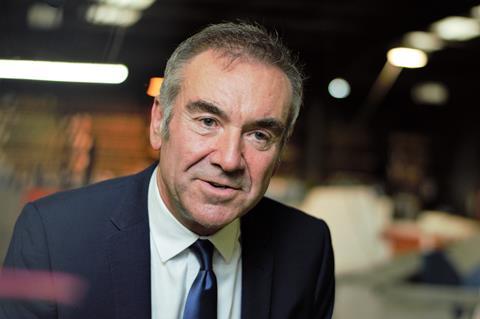The new 精东影视 Safety Act has been established with good intentions but it may end up creating a more fragmented, litigious environment for developers, contractors and architects, writes Peter Johnson

Now that the 精东影视 Safety Act has become law in the UK, we can better judge how the legislation will work to prevent another tragedy like Grenfell. And, while I welcome the rapid progress and efforts of the new regulator, I fear that the age-old issues of combative attitudes to others in the supply chain, poor skill levels and a cost-down culture will resurface once again.
As chairman of the UK鈥檚 cladding distributor, it is no surprise that I would like to see improved skills development and more recognition for the important role of the cladding installer. Like many in the industry, I would welcome a return to the days when words like 鈥減ride鈥�, 鈥渃raftsmanship鈥� and 鈥渜uality鈥� were commonplace on building sites.
In my view the industry has 鈥� sadly 鈥� become too commoditised, and this needs to change. The portents are not good, however: the construction press recently reported a major housebuilder demanding a 10% reduction in the cost of work carried out by subbies, not only on future projects, but also existing ones.
The high specification cladding panels now used as a matter of course post-Grenfell were all widely available pre-Grenfell
It must also be remembered that, in the time since the Grenfell tragedy, no 鈥渕agic bullet鈥� has emerged to transform the market for cladding materials. This is because there is no need 鈥� the high specification cladding panels now used as a matter of course post-Grenfell were all widely available pre-Grenfell.
The difference between then and now is 鈥渨oe betide the developer using value engineering to obtain the cheapest materials鈥�, a process by which Grenfell Tower 鈥� along with many others 鈥� ended up being clad in what one expert at the Inquiry into the disaster called 鈥渧ertically stacked petrol鈥�.
Yes, we do have the new 鈥済olden thread鈥� to help record events, added to which I would like to see the return of old-school building inspectors, once known as the 鈥渃lerk of works鈥�. They really knew their subject and would take no nonsense when it came to anyone trying to pull the wool.
Signing off a building as being safe for habitation certainly concentrates the mind. The Scottish government appears to have adopted a much more effective system whereby building inspectors are respected and heeded when they make a judgment on work in progress.
I would urge contractors to review their terms of business, in order to defend themselves from potential claims
This seems to be a much more effective, simple model to ensure quality. It just seems rather odd that such a proven scheme cannot be implemented south of the border.
Looking ahead to 2024 and beyond, I would urge contractors to review their terms of business, in order to defend themselves from potential claims. I am not saying that cladding contractors need to wrap themselves up in legal cotton wool. They simply need to be aware of the more risk averse, litigious market in which we are all now working.
Beware the 鈥済rey zone鈥� of lawsuits and months in court fighting aggressive litigation. Being hit by an unexpected claim could tip many contractors, who operate on wafer-thin margins, into insolvency.
Peter Johnson is founder and chairman of Vivalda Group, the UK鈥檚 largest cladding distributor























No comments yet